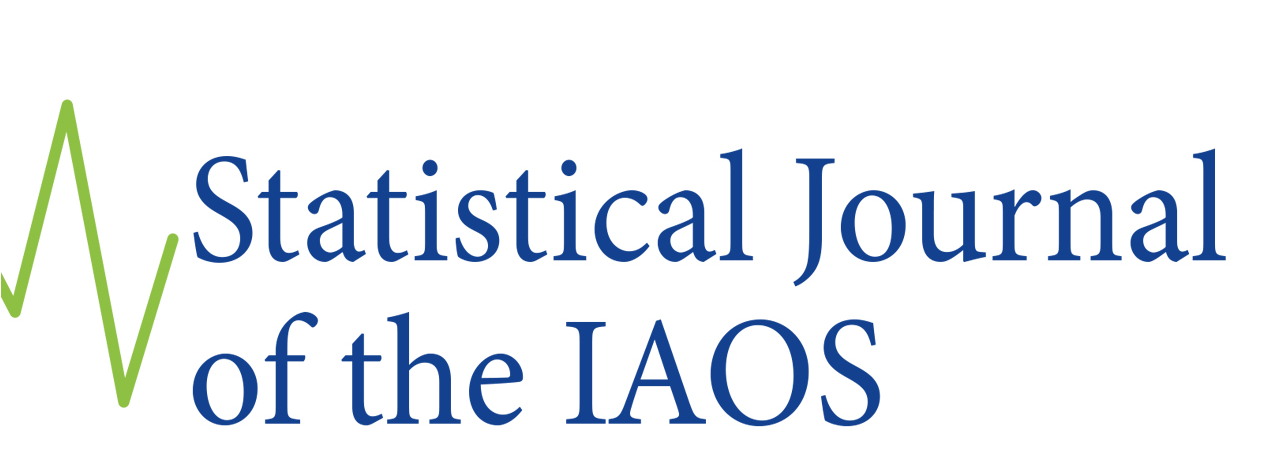
The fifth discussion on the discussion platform centers around statements taken from Volume 36/3, The Future of economic statistics.
The discussion will focus on the four inter-related and mutually reinforcing building blocks of the emerging new statistical business model for economic statistics: outreach and user consultation; statistical framework; institutional and statistical operations, and data stewardship; and statistical infrastructure and data solutions.
Closed: Discussion on the future of economic statistics
Background
Under the purview of the United Nations Statistical Commission, consultation activities and discussions with the representatives of the national and international statistical organizations and senior economists led to the acknowledgement that the future system of economic statistics needs to be more responsive and agile to better meet the collective needs of users. Greater responsiveness of the statistical system can be achieved by allowing the statistical and institutional operations and supporting infrastructure greater experimentation, and by increased collaboration and co-investment in the areas of data access, data sharing and exchange, new data solutions and technological resources. The COVID 19 pandemic and its global impact has provided the official statistical community an opportunity to meet this challenge for official statistics collectively in demonstrating its resilience, maintaining its relevance, and proving its responsiveness.
In the circa 20 manuscripts that are published in the Special Issue of the Statistical Journal of the IAOS, Volume 36/3, ‘The Future of economic statistics.’ (Link) many elements of such a challenge to arrive at a more responsive and agile system of economic statistics have been discussed.
The four statements below focus on the most important elements of a new statistical business model that is needed to achieve such a more responsive and agile system of economic statistics. Main question is if we official statisticians and our environment are sufficiently up for the challenges, and adequately focused and resourced to make this new statistical business model a reality.
Better collaboration and user consultation.
The statistical response to the pandemic challenges the system of economic statistics more than ever in meeting the demand for a whole-of-system approach (“in networking the system”) featuring broad consultations and assessment with users (“in engaging the user”).
Statement
New networking mechanisms and user engagements are needed in response to the COVID pandemic that will allow the statistical system to be more responsive to the user needs. Creative solutions are needed that will guarantee that these new networking and user engagements will be sufficiently sustainable and constantly improved.
Statistical infrastructure for better data solutions.
More responsive economic statistics require a pivot to a new statistical infrastructure that is flexible in adopting innovative data solutions. These new statistical infrastructure and data solutions extend to applying new technologies for new data sources and new data collection methods, using alternative data sources, fostering network relationships with data providers (both administrative and private data), integrating high frequency data and structural information, releasing experimental statistics, and making decisions on when to discontinue the collection and compilation of traditional time-series.
Statement
The global and national statistical assets need a substantial boost in co-investment by national and international statistical agencies, academia and private sector companies for creating a joint collaborative environment for advanced data solutions that are applicable for statistical production in both developed and less developed statistical systems.
Better institutional arrangements and operations.
Apart from data stewardship and whole-of system approach through new networking arrangements with public and private sector partners for access and use of technology, data, and methods, the institutional and statistical operations should increasingly adopt the compilation of iterative and experimental measures in a timely manner in addition to the traditional time-series and indicators to meet the new user demands.
Statement
To become good data stewards in the national statistical system, the NSOs need to be much better at realizing collaboration between all relevant stakeholders in the data ecosystem access to data, data solutions, and introducing innovative statistical methods. International organizations are currently insufficiently equipped to support the NSOs in taking up the role of data stewards.
Better statistical framework and methods.
The national statistical responses to COVID-19 seem to merit a broader framework for the future of economic statistics, which goes beyond measuring GDP to measuring social, environmental and well-being dimensions and high frequency statistics to track the impact of the pandemic. Adopting this broader measurement framework necessitates collaboration with both public and private sector partners to get more and better access to data and statistical registers to produce the suite of relevant and high frequency granular indicators.
Statement
The international statistical system needs to adopt a more iterative approach to developing statistical standards and practices to ensure that the statistical framework evolves with the needs to inform a fast-changing socio-economic environment.
JamesWhitworth
Firstly, many thanks for the authors for initiating this discussion.
Whilst COVID has had a profound effect on just about everything and has resulted in a new ball game in so many ways, most of the arguments raised are not new: for example, the requirements for better networking, user-engagement and, of course, the eternal need for more investment. The statements contain some admirable aspirations, but I would welcome more guidance on how they can be achieved. A couple of examples:
We have been working on networking and user-engagement for decades – with some, albeit limited, success. What sort of “creative solutions” might achieve more? What can we learn from our previous experiences?
How would you envisage that international organisations become better equipped to support NSOs in taking up the role of data stewards? What are the current shortfalls? Do the mandates of the IOs need examining?
On the issue of an iterative approach to developing standards, whilst I don’t have the same direct experience of recent SNA revisions as the authors, I have observed them from relatively close quarters. My impression is that this process has, if anything, been too iterative: the emphasis has been on not rocking the boat too much (those pesky users hate discontinuities and revisions, don’t they?) and so keeping the new version as similar as possible to the previous one, with some tinkering on issues that have been raised in the intervening years such as treatment of pension schemes, R&D, etc., which arguably are mostly relevant to the developed world. Has the time come to apply a more broad brush approach?
